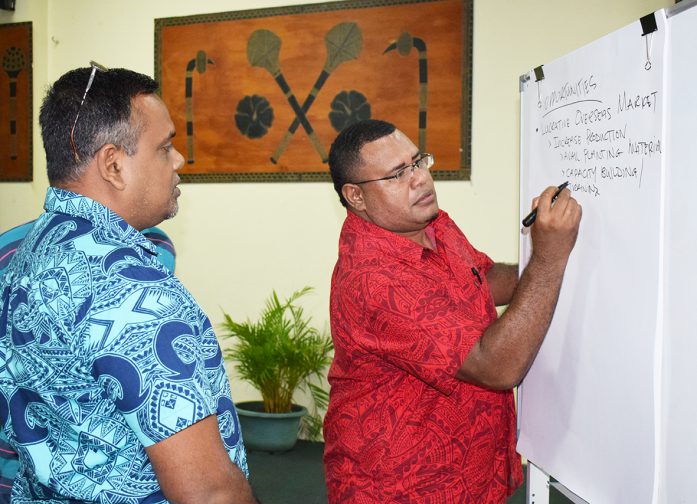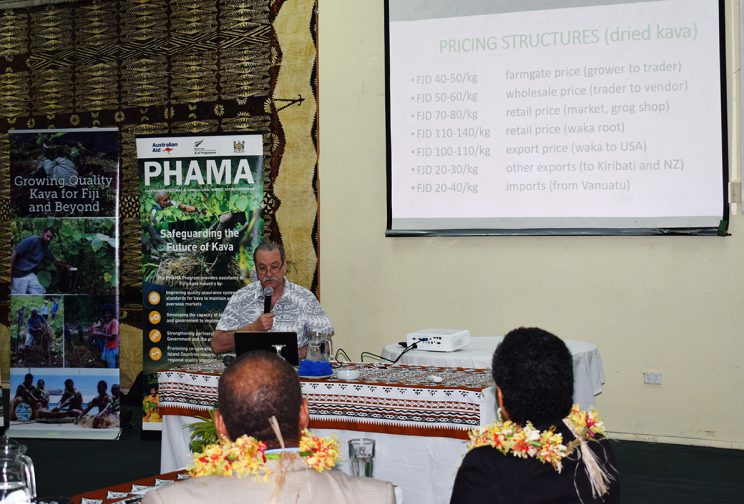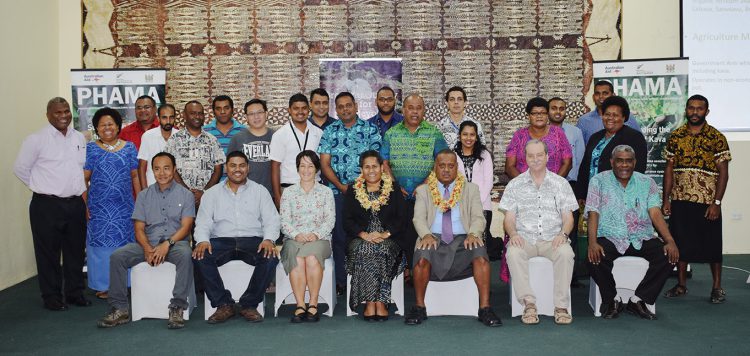Fiji’s kava industry meets to discuss value chain analysis
As part of efforts to improve the consistency and reliability of Fiji’s kava production and grow exports of quality kava products, a comprehensive analysis of the kava value chain is being done.
In collaboration with the Ministry of Agriculture’s Kava Taskforce and the Pacific Horticultural and Agricultural Market Access (PHAMA) Program, the analysis is being carried out over several months for kava-producing areas around the country. The analysis is looking at financial, technical and social issues including the different roles, challenges and opportunities faced by women, men and youth.

Participants of the Kava Value Chain Analysis Workshop engage in a SWOT analysis of the findings. Photo: Samantha Rina/PHAMA
The draft findings of the analysis were discussed with kava stakeholders at a workshop on August 16, 2017. The workshop will identify follow up actions towards developing Fiji’s national kava strategy.
Fiji produces approximately 4,000 tonnes of dried kava a year and exports to a range of countries including within the region, New Zealand and the USA. Although there is enormous potential to increase exports, approximately 95% of kava being produced is currently supplied to the domestic market. To offset the current shortage of kava, Fiji is importing kava from Vanuatu to accommodate the domestic demand.
While kava is a very important commodity for Fiji’s economy, a systematic value chain analysis of the sector has never been carried out. The analysis will map the value chain, establish baselines and identify the roles, responsibilities, expectations, challenges and opportunities for all participants.

International economist David Young during the workshop in Suva. Young is leading the analysis. Photo: Samantha Rina/PHAMA
David Young, an international economist leading the analysis, said, “The value chain analysis, which is still ongoing, has involved consultations with kava sector stakeholders around the country, and a stakeholder workshop. So far it has confirmed that kava is one of Fiji’s most important agro-industries with total production worth about FJD 330 million in the domestic market and exports worth about FJD 14 million.”
He said strong local demand for kava meant that prices are high and rising.
“Whilst this is good for the 10,000 plus families that grow kava, it means that the exporters are struggling to fill orders, including in the USA market where prices are very high,” he added.
Losalini Leweniqila, PHAMA’s National Coordinator in Fiji, said, “The value chain analysis was endorsed by the Fiji Market Access Working Group (MAWG) and implemented by PHAMA as part of its assistance to Fiji’s kava industry. PHAMA’s priority is to improve quality assurance systems and standards which will in turn ensure that market access is maintained and the volume and quality of exports are increased.”

Participants of the kava value chain analysis workshop with chief guest, Maca Tuilakepa, Deputy Secretary for Corporate Services and Planning of the Ministry of Agriculture, at the workshop. Photo: Samantha Rina/PHAMA
For further information, contact Losalini Leweniqila at l.leweniqila@phamaplus.com.au or on +679 9957 593

